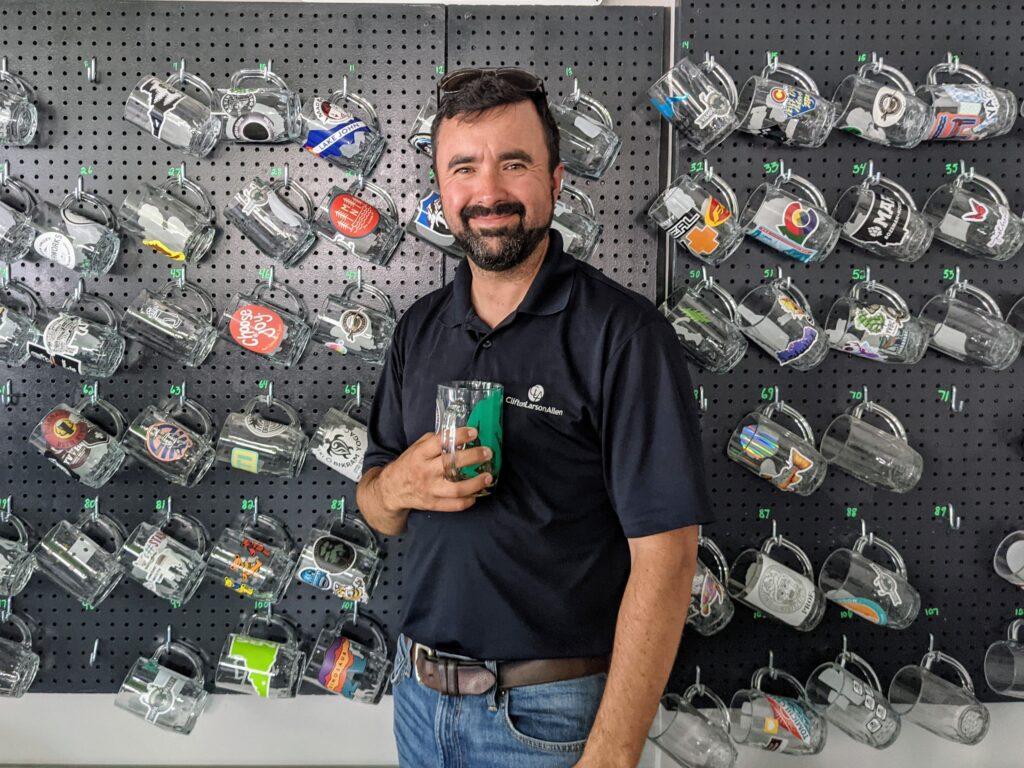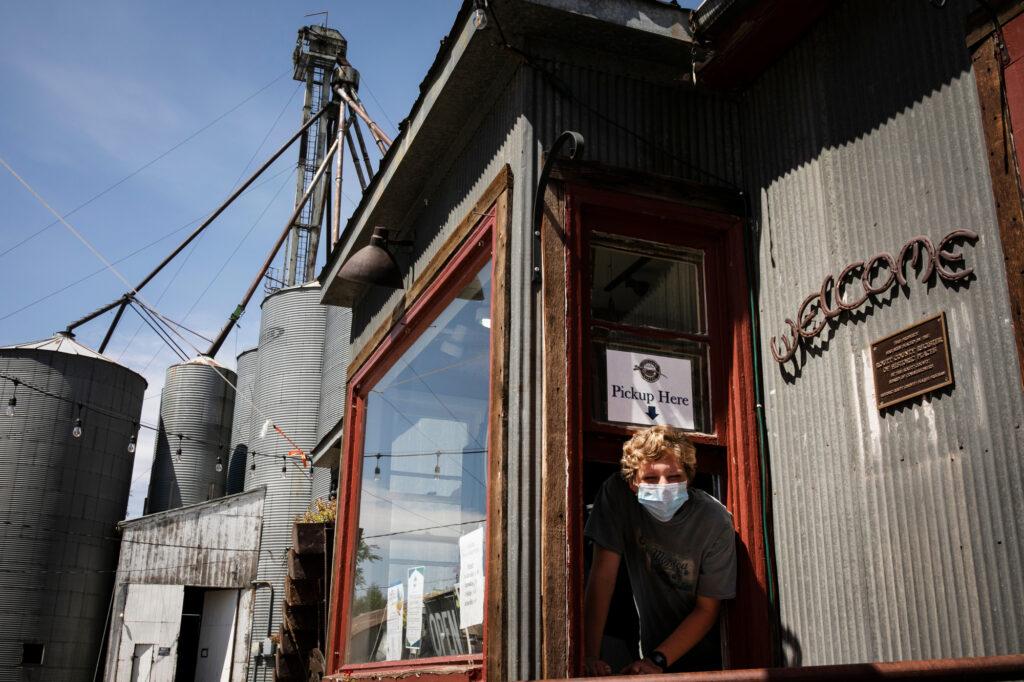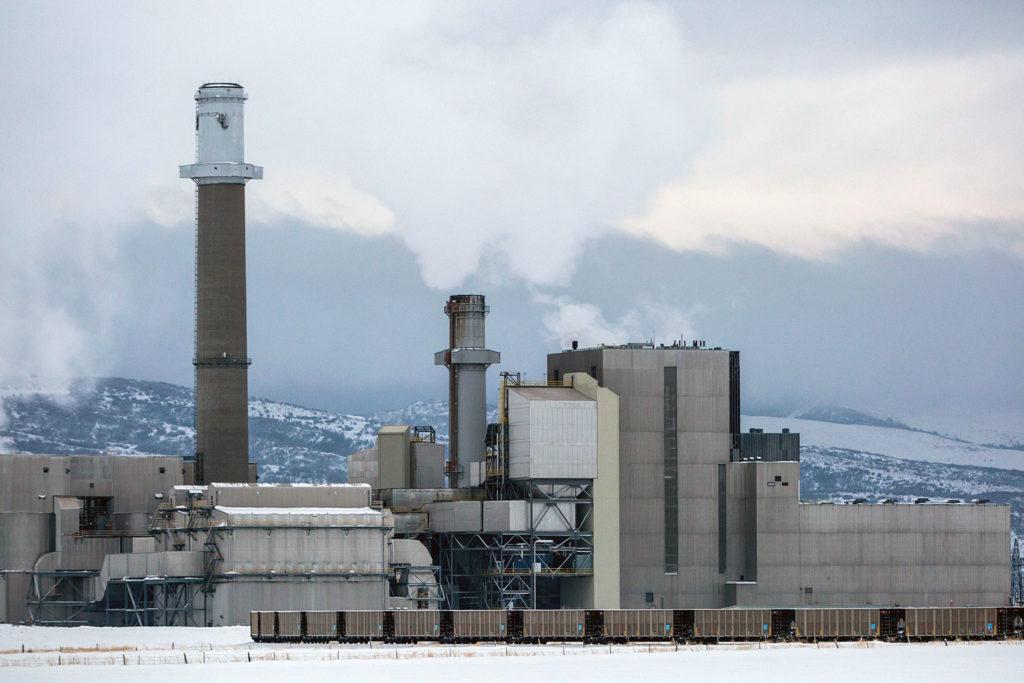
Mathew Mendisco knows his community looks less and less like a coal town.
On a recent afternoon, the town manager of Hayden, Colo., arrived at Yampa Valley Brewing Company for happy hour. The taproom is attached to a small vacation rental unit. Next door is a new coffee shop built into a historic granary. All the recent development suggests the town of about 2,100 is on its way to becoming the hip, cheaper neighbor of Steamboat Springs, with its ski lifts and megamansions.
But Mendisco says municipal finances don’t lie. While Hayden might be changing, coal remains the bedrock of the local economy.
The Hayden Generating Station, a coal-fired power plant owned by Xcel Energy, accounts for more than half the property tax base for the local school district, fire district and cemetery district. With starting salaries around $80,000, the plant is also a reliable source of high-paying jobs in a town with rapidly increasing housing prices.
“When I arrived four years ago, coal was vitally important,” Mendisco said. “It’s still vitally important.”
The town could soon test whether a buzzy new idea could help it ditch coal without losing its economic benefits. Rather than raze the plant to meet its climate goals, Xcel Energy has proposed transforming the power plant into a massive battery to bank electricity generated by renewable energy.
If the idea works, it could be a case study for other communities trying to preserve jobs and property taxes as the world shifts to cleaner electricity.

There’s no question coal is on the way out in Hayden
Last January, Xcel announced it would accelerate the retirement of the power plant, previously set to shut down in 2036. Both of the station’s units are now scheduled to stop burning coal by 2028.
The company cemented the timeline in an energy resource plan submitted to state regulators in March, which it claims will cut its Colorado greenhouse gas emissions 85 percent by 2030.
Jack Ihle, the company’s director of environmental policy, said the plan also requires a rapid expansion of energy storage in Colorado.
As the company adds wind and solar, it needs to stockpile power for moments when the sun disappears or the wind dies down.
“The main question is how we get through long periods of time without burning fossil fuels and emitting carbon dioxide,” he said.
In a May presentation for local officials, Xcel executives detailed how a remodeled Hayden Station could help solve the renewable storage problem.
To transform the powerplant into an energy storage facility, the company would add a tank full of salt and melt it at times when the grid fills with excess renewable energy. When energy demand outpaces supply, one of the existing steam turbines could then transform the stored heat back into electricity.

Interest in molten salt storage is on the rise
Xcel is not the first to propose the idea. Germany has a pilot project to repurpose a coal plant for molten salt energy storage.
Malta Inc., a start-up spun out of Google, recently announced a $60 million round of funding to build a 100-megawatt thermal energy storage plant. It’s also partnered with Duke Energy to integrate the technology into an existing coal plant in North Carolina.
Craig Turchi, a thermal energy engineer with the National Renewable Energy Laboratory in Golden, said he’s not surprised to see so much interest in molten salt energy storage. If the technology works, it can be easily scaled up by adding bigger tanks of molten salt.
The resulting system could store enough power to supply electricity for days, Turchi said. By contrast, current grid-scale lithium-ion batteries tend to exhaust themselves in a few hours.
“What that means is it becomes more cost-effective when you want to have longer-duration storage,” Turchi said.
An Xcel spokesperson said its current plan is to convert one of the Hayden station power units into a 150-megawatt energy storage system capable of supplying power for 10 hours.

Next steps and possible roadblocks for the Hayden plant
The company plans to submit a more detailed plan next year as a part of the bidding process for its latest energy resource plan. The Colorado Public Utilities Commission will then decide whether to include the retrofit in a larger portfolio of new energy projects.
One roadblock could be the primary mission of the utilities commission. Since Xcel customers can rarely choose another power provider, the state regulates utilities to build reliable electricity systems at the cheapest price for ratepayers. The regulatory system could cut against a novel molten salt energy storage system.
Democratic State Rep. Dylan Roberts, who represents Hayden, sponsored a bill to encourage more experimentation in the last legislative session. The measure, signed by Gov. Jared Polis in July, lets utilities propose more novel ideas in areas affected by power plant retirements, but only if the companies finance the projects upfront.
“They have to assume the risk of failure,” Roberts said. “The ratepayers will never be financially responsible for a failed project. They will only have to pay if it actually produces green energy.”
- The End Of An Era: The Martin Drake Coal Plant In Colorado Springs Burns Coal No Longer
- Why An Arvada Eco-Village Is Fighting To Keep Out Natural Gas
- ‘Sewer Heat’ Could Be Hidden Ally Against Climate Change. Here’s How Denver Is Pulling It To The Surface
- Methane From Abandoned Coal Mines Could Be Key To Fight Climate Change — If Only It Made More Money
The legislation also won fierce support from organized labor.
Richard Meisinger, the business manager of the International Brotherhood of Electrical Workers Local 111, said the Xcel plan could help keep union members in Hayden as the state attempts to combat climate change. The total number of employees at the power plant hovers around 72 people, according to Xcel Energy.
“A true just transition is to keep Hayden station open with a carbon-free energy source such as molten salt. It just makes sense,” Meisinger said.
Whether or not the technology proves viable, it has united political and business interests in northwest Colorado. Mendisco, the Hayden town manager, thinks the company seems determined to win the goodwill of public officials.
Before announcing the power plant’s accelerated retirement, he said one of Xcel’s top Colorado executives gave him her personal cell phone number and told him to call with any frustrations.
“To me, this was a great step forward and a step of trust,” Mendisco said. “And as long as we all maintain that, I think we’ll be great.”







